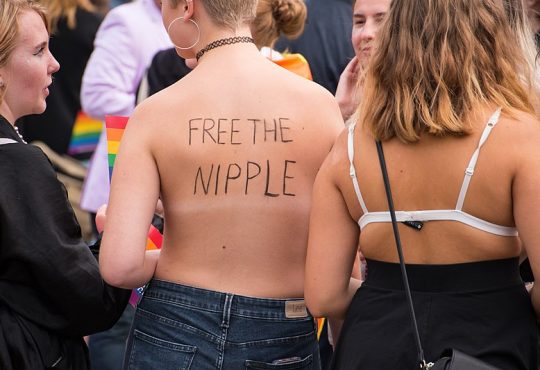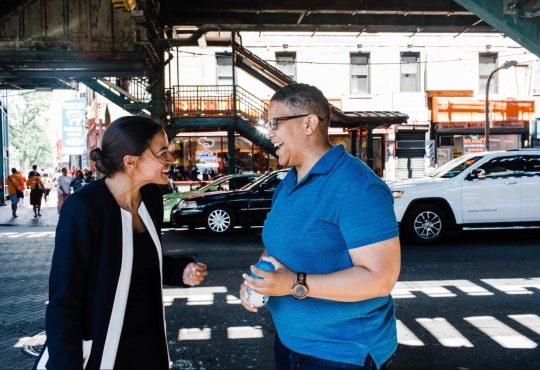
For people who are transgender, nonbinary, and/or gender nonconforming, coming into an authentic gender is a life-affirming and even life-saving step.
Sometimes people on purpose or on accident call trans people by gender pronouns that don’t match the ones they currently use; oftentimes these are the pronouns that the individual used before they came out or made a transition. This is called misgendering and can be extremely hurtful and disrespectful.
A 2014 study in the journal of Self and Identity asked transgender and nonbinary people about their experiences with being misgendered. 32.8 percent of the study participants felt very stigmatized when they were misgendered.
Mary Aquiningoc is a Puget Sound senior and nonbinary trans person. “Imagine if people used the wrong pronouns for you and then add the violence and systemic marginalization trans people experience,” Aquiningoc said. “Using the correct pronouns are just an easy way to say you respect me and care about the wellbeing of trans people everywhere. It’s also just correct.”
The most obvious and appropriate thing to do if you accidentally misgender a trans person is to apologize, correct yourself and make sure to never do it again. Especially if you are in a group setting, do not make a big deal out of it or go into a monologue about your support for trans people or, god forbid, explain why you mistook them for a different gender.
Gender and Queer Studies Professor Heather White said that they often come across accidental misgendering in class all the time, even of the authors of texts they’re studying in class.
“I try to find graceful ways to correct misgendered pronouns when I hear them in class. The most frequent example is actually not references to peers but misgendering of authors we read in class. So I try to be proactive. For example, Mircea Eliade would use ‘he’ pronouns! In group work and other contexts where students interact with each other, I also try to direct them in advance to pay attention to each others’ pronouns,” White said.
Aquiningoc said that they personally don’t care if someone misgenders them as long as that person is working hard to correct themself. They said that it makes them feel welcome as long as people are trying their best.
“I don’t really like when people make it a point to apologize profusely or draw attention to me though,” Aquiningoc said. “I understand they mean well but it can be embarrassing especially in group settings, and it’s usually more about people feeling embarrassed and wanting to be validated than it is about my discomfort.”
Of course, it is always important to take preventative measures first. This means avoiding assuming a stranger’s gender, especially in situations in which you are unsure. For example, instead of saying “He would like a tall latte,” you could say “that person/they want a tall latte.”
This could also mean avoiding gendering a large group of people. Students have (rightfully) taken issue with choir directors who call their sopranos and altos ladies or women and their tenors and basses gentlemen or men during rehearsal. Instead, choir directors (and everyone else) should stick to calling the the voice groups by their technical name instead of the genders that they are traditionally attached to.
Aquiningoc echoed this example and said that in their opinion the most respectful practice is to simply ask for pronouns or use they/them pronouns for people until they’re sure. “I often ask mutual friends or even check Facebook if I’m worried about making the person uncomfortable, but I know at the end of the day it’s more uncomfortable to be misgendered than to awkwardly ask about pronouns directly,” Aquiningoc said.
Both Aquiningoc and an anonymous trans student at Puget Sound agree that it can be difficult to correct people when they are misgendered, especially in class by a professor based on the public nature of the situation as well as the power dynamic.
Because of this, it is important to check in and say pronouns before any sort of group meeting, especially until transness is normalized. It is especially important for the leader of the group (for example, the professor of a class or the president of a club) to initiate pronoun sharing so that trans students know that those in power won’t respect them less for being trans.
“The cisnormative binary is a relatively modern concept but it’s still so heavily ingrained that taking the space to ask people’s pronouns assures trans folks that it’s safe and okay for them to exist,” Aquiningoc said. “That’s pretty important because it might be only 10 seconds of a cis person’s day, but that creates an entire space for a trans person to be able to stop worrying about how people perceive them 24/7.”
Even though everyone makes a mistake from time to time, it is okay as long as you’re actively trying to get pronouns right. Aquiningoc said that “it is a matter of respect, and wouldn’t you rather be someone who respects human life instead of someone who hurts and disrespects people out of ignorance or stubbornness? Trying your best to use the right pronouns is an extremely easy way to show someone that you respect them whether you understand them or not. And then the next step is trying to understand.”
The bottom line is that having potentially uncomfortable conversations about pronoun usage is an easy way to open the door to more respect and understanding of trans people and in turn making the world safer for trans people.
“I think that’s a responsibility for people privileged enough in spaces where they can have those conversations safely, cis or trans,” Aquiningoc said.





